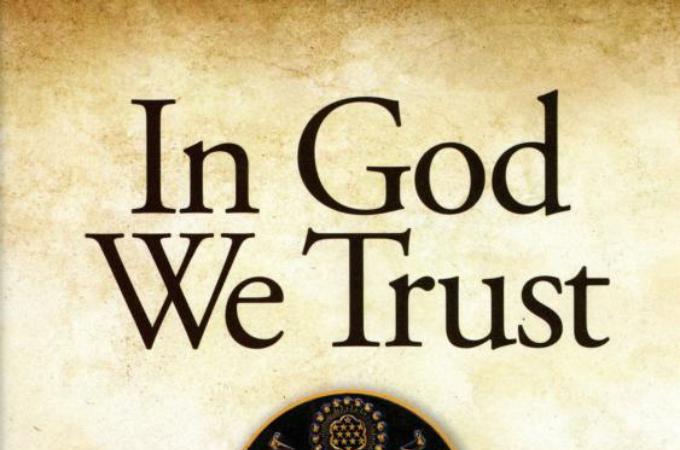Author's advice on moral investing not the only Catholic way
"In God We Trust: Morally Responsible Investing" by George P. Schwartz with Michael O. Kenney. Tan Books (Charlotte, North Carolina, 2018). 274 pp., $29.95.
George P. Schwartz, a certified financial adviser and CEO of Schwartz Investment Counsel, explores the idea of "participating in the capital markets in a purposeful, reasoned and ethical way to achieve legitimate investment objectives and avoid morally objectionable businesses" in his book, "In God We Trust." Schwartz names this idea "morally responsible investing," and practices it through the Ave Maria Mutual Funds, which he manages.
At the core of morally responsible investing are four guiding principles: The fund will not invest in companies that are "involved in the practice of abortion," "judged to be anti-family, such as companies that distribute pornographic material," contribute "corporate funds to Planned Parenthood" or engage in embryonic stem-cell research.
Schwartz presents here how and why he came to start this family of mutual funds. He has high praise for the members of his "Catholic advisory board," who help to determine whether potential investments meet the criteria of Catholic moral teaching that underpins the funds. He also presents a primer on investing, which is valuable information to anyone unfamiliar with purchasing stocks and bonds.
Schwartz is a full-throated booster of American capitalism, espousing particularly the idea of "democratic capitalism" as presented by Michael Novak: "a predominantly market economy; a polity respectful of the right of the individual ... and a system of cultural institutions moved by ideals of liberty and justice for all." As such, he is highly critical of socialism in any form, seeing it as a failed idea.
In many ways, the book serves as marketing material for the Ave Maria family of mutual funds. We learn how successful they have become: how much money they have invested, how they have performed against the broader market, how they analyze companies to purchase. This is all valuable information to anyone considering investing money in these funds but of not much value to someone seeking to learn more broadly about morally responsible investing.
Schwartz is at his best when discussing financial matters, less so when he tackles social and political issues.
He seems to equate "the pursuit of happiness" phrase in the Declaration of Independence with owning private property. He states that "socialism is inconsistent with the U.S. Constitution" and that "in essence, the Democratic Party has become the party of socialism."
He sees little place for government regulation of business and hails capitalism because it "fosters honesty, industry and respect for the dignity of all human beings."
Nowhere is there a mention of how unfettered capitalism fosters monopolistic behavior (the rich and strong wanting to control everything for themselves) or how industrial pollution poisons millions of people every year.
Schwartz also seems to argue that his brand of morally responsible investing is the only Catholic way to invest, which is simply not the case. Ave Maria is to be congratulated for not investing in companies that violate their four stated principles, but what about other issues of Catholic moral theology?
Do they invest in companies that make weapons, poorly pay and otherwise mistreat employees, prevent employees from joining unions, and pollute the air and water, to name only a few issues that are explicitly part of Catholic social teaching and Catholic moral theology? Nothing is mentioned here on these issues. Investors (and readers) beware.
- - -
Mulhall lives in Louisville, Kentucky.



















